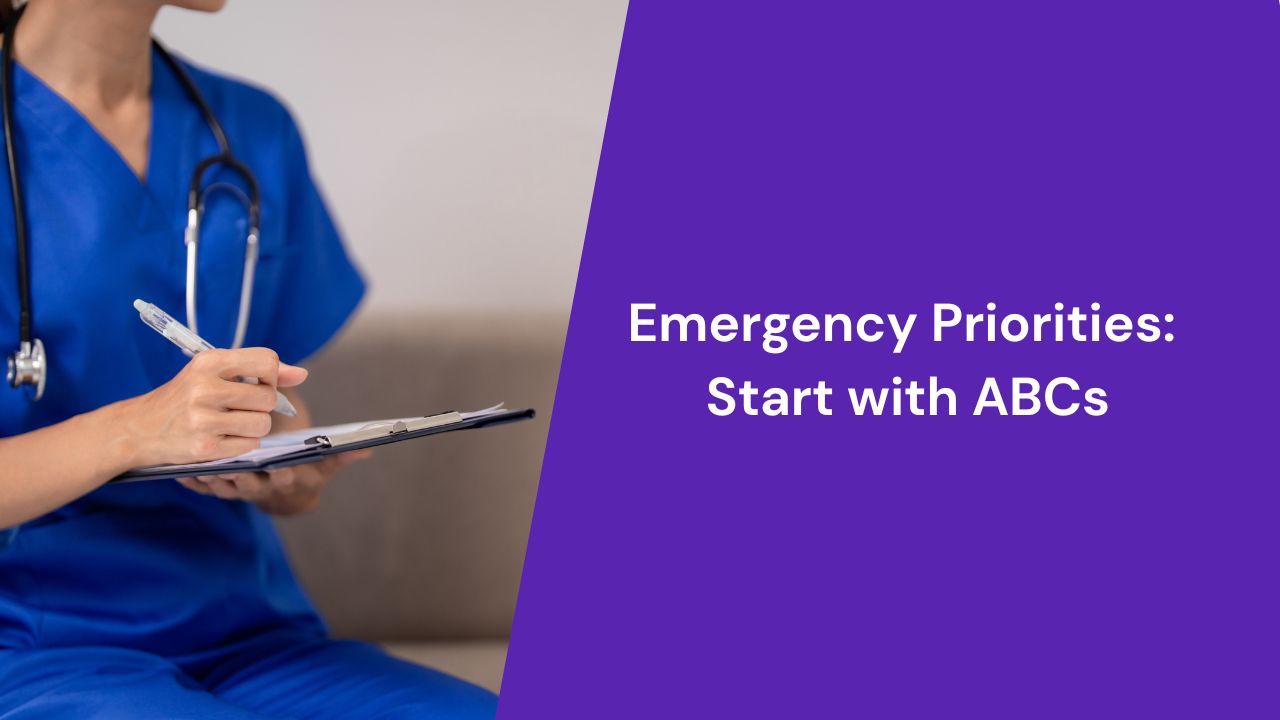A nursing license for each state is required to work as a registered nurse (RN). What is RN licensing, and what is an RN? Keep reading to find the answers to these questions and everything you need to know about getting your RN license.
What is a Registered Nurse (RN)?
An RN is a registered nurse who is a provider in healthcare who has graduated from a nursing program. For a registered nurse to practice, they must have passed the NCLEX-RN examination to be licensed in a particular state.
How Can You Get a Nursing License?
Each state varies in requirements to get a nursing license in each state varies. Be sure to reference the specific RN licensure requirements in your state of residence. You must enroll and graduate from educational courses in an accredited nursing educational program receiving a diploma as an RN with an associate's or bachelor's degree in nursing. You will have a licensing exam to pass to obtain your license, a requirement for continuing education hours, and a renewal process to maintain your license every other year.
What Are Nursing Specialties?
There are many specialized areas in nursing where nurses receive additional training. The following are just a few examples of RN specialties:
- Substance abuse nurses specialize in addictions and work in recovery centers certified by the International Nurses Society on Addictions (IntNSA).
- Cardiovascular nurses work in coronary care units (CCUs) or cardiovascular intensive care units (CVICUs) in hospitals that treat patients with heart disease.
- Critical care unit (CCU) nurses, also known as intensive care unit (ICU) nurses, work with the most serious situations and work in intensive care units. Certification can be found on the American Association of Critical-Care Nurses (AACN) website.
- Gastroenterology patients have problems with the stomach and digestive system. The American Board of Certification can obtain certification for Gastroenterology Nurses (ABCGN).
- Medical-surgical nurses Work in hospitals and usually care for five to seven patients in a shift.
- Neonatal intensive care unit (NICU) nurses work with babies born prematurely or those with chronic illnesses in the neonatal intensive care unit. The AACN administers certification for these nurses.
- Occupational health nurses may work for large companies offering their services to a workplace. The American Board for Occupational Health Nurses (ABOHN) provides a certification program.
Nursing Shortage Drives The Need for More RN Licensing
The need for healthcare workers is ever-increasing. As a matter of fact, the U.S. Bureau of Labor Statistics (BLS) estimates that employment in healthcare occupations will grow 16% from 2020 to 2030, which is much faster than the average for all occupations.
With the baby boomer population (born between 1946 and 1964) getting older, there is a higher need for medical services. The U.S. Census Bureau estimates there will be 73 million baby boomers in the nation in 2020; by 2030, all boomers will be at least age 65. Not to mention the jobs opening from retirement from aging baby boomers.
Registered nurses (RNs) will increase in demand as time goes on to take care of the baby boomers. The BLS projects that registered nurse employment will grow 9% from 2020 to 2030, about as fast as the average for all occupations.
How long one is an RN decides their duties, where they are employed, and the skills they specialize in.
Clinical Responsibilities of RNs
- Patient assessments.' conditions and vital signs
- passing medications and treating as prescribed by doctors and other healthcare providers
- help setting up patients' plans of care
- Consulting and collaborating with other healthcare providers
- running and overseeing medical equipment
- Performing and analyzing diagnostic tests
- Educating patients and their families
Administrative Responsibilities of RNs
- Logging medical histories and symptoms
- Overseeing other healthcare workers, and medical assistants
What's the Average RN Salary?
Salaries will vary depending on where you're located, your experience, and who you're employed. Still, on a national average, RNs in the United States earned $75,330 in May 2020, according to the BLS.
RNs who work in government earn the highest average incomes — $84,490 — followed by RNs who work in hospitals ($76,840), ambulatory care services ($72,340), and nursing care facilities ($68,450), and education ($64,630).
Here are the top-paying states for RNs, according to the BLS occupational employment and wages for registered nurses, by annual mean wage:
- California – $120,560
- Hawaii – $104,830
- Massachusetts – $96,250
- Oregon – $96,230
- Alaska – $95,270
Compact Nursing States 2022
Travel nursing has been made possible by the (NLC) Nursing License Compact, an agreement made between a group of states allowing a nurse with one license to practice in all participating states.











.jpg)
.webp)

